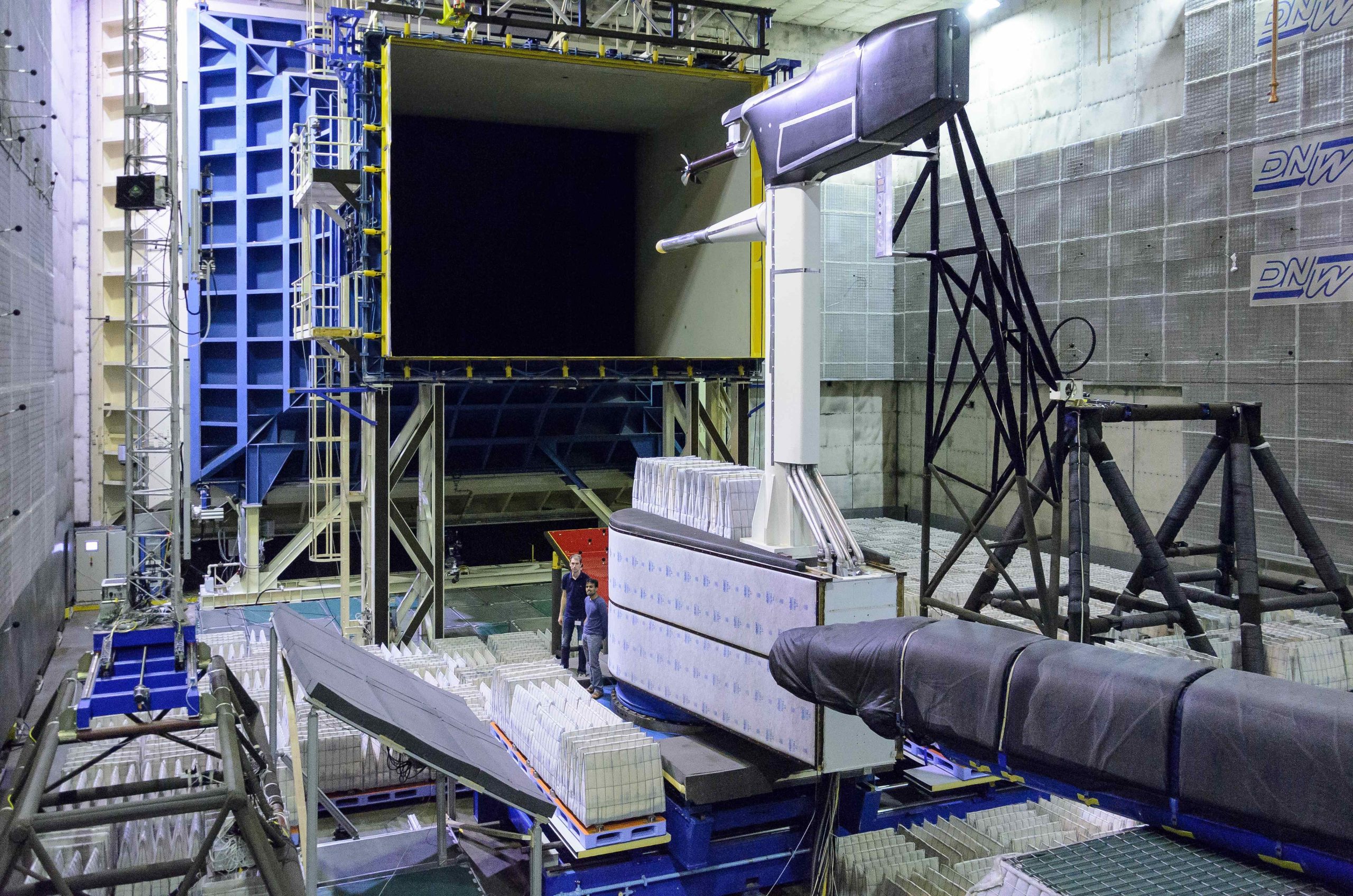A test in the Netherlands’ largest DNW windtunnel last week has shown a turboprop’s sound can be reduced by providing extra air.
Turboprops are an attractive thrust alternative for jet engines on short and medium-range flights because they’re more energy efficient at moderate speed and height. Their main disadvantage is their loudness.
Because of that, aircraft designers tend to place the propeller behind the wings of an aircraft, to increase the distance to the aircraft’s cabin and crew.
Call it irony, but a ‘pusher-propeller’ behind a wing produces even more noise because of the disturbed airflow.
PhD student Tomas Sinnige (AE) researched the influence of the airflow at Holland’s largest DNW wind tunnel in Marknesse last week.
He not only placed a wing profile in front of the turboprop, but added air as well. Meanwhile he measured the amount of noise.
Looking through his preliminary results, Sinnige says that providing extra air towards the propeller (from pressurised air from the engine for example) will reduce the propeller’s noise by 4 – 9 decibel.
“This means that blowing extra air brings down the noise of a pusher propeller to the noise level of a turboprop in front of the wing”, Sinnige explains.
He notes that the reduction was measured in the propeller’s plane. For positions in front or behind this plane, the reduction should be larger. Sinnige is confident the data will confirm the effect.
During the test a large microphone array from TU’s Aircraft Noise and Climate Effects group and operated by PhD student Anwar Malgoezar was tested as well. It is the tilted plane in the bottom left of the photo. It contains an array of microphones with which it can locate the source of the sound. Its data will be used to find out what causes the noise.
The tests took place from 15 – 30 September 2014. Known under the code-name APIAN-INF, the test involves partners such as Airbus, DLR. DNW, aeronautical institute INCAS Budapest, Central Aerohydrodynamic institute TsAGI in Moscow and the universities from Braunschweig, Cambridge and Delft.



Comments are closed.